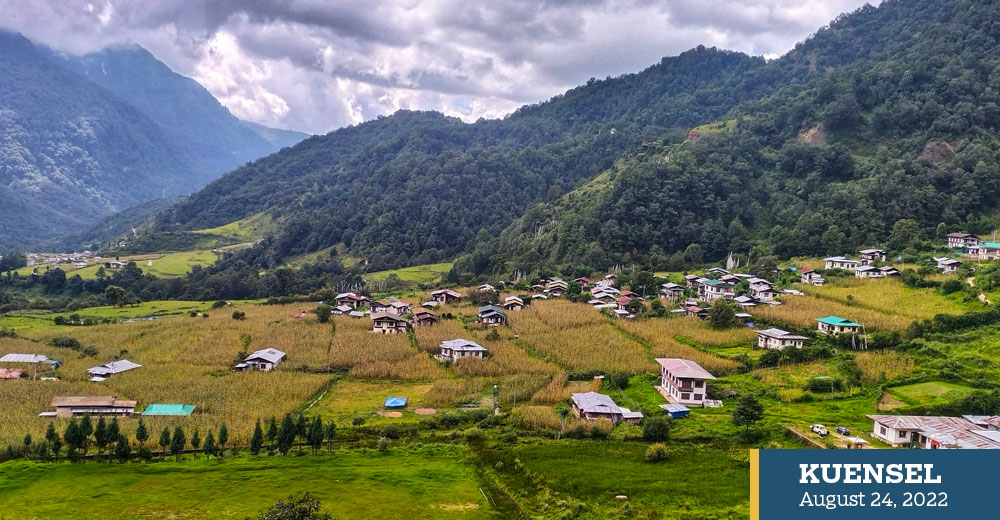Neten Dorji | Khaling
Farmers in Khaling, who cultivate potatoes on a commercial scale, are losing interest after climatic conditions and armyworms caused repeated crop failure.
For farmers in the six chiwogs of Khaling gewog, potato cultivation is the main source of income. Some said their 200 bags of potatoes yield dropped to 38 bags.
Many farmers worry of not being able to meet basic expenses.
Tshewang Yueden has two children going to school. She is worried about how to meet their education expenses for the rest of the year.
“I earned Nu 100,000 from the potato crop in 2020,” said Tshewang Yueden. “The income from potatoes has dropped in recent years because production has declined and all villagers are worried.”
Another villager, Chimi Wangmo said, “The disease has become a serious threat to our livelihood.”
Potato growers face the greatest uncertainty this year as output has declined. They blame it on erratic weather which cause armyworms. This has left many farmers wondering if next season is a gamble they can afford to take.
“This is the most challenging time in farming we have ever seen,” said farmer Choden Zangmo. “It has been several years since the worm and blight affected the crop.”
Farmers said that they are losing interest in farm work. “Now, we have to look for an alternate source of living.”
Gomchu-Khordoong Tshogpa, Tshering said, “The main source of income of the community has been affected. There are no alternative cash crops for us. It makes farmers more vulnerable.”
Locals said that they have to improve the soil health, and seeds need to be replaced as they were planting the same varieties for years.
“I have tried numerous remedies. I sprayed pesticides but the same disease keeps affecting the crop,” another farmer, Deki said.
She harvested around eight bags of potatoes this year from her 50 decimal field which used to produce at least 22 bags.
Farmers said timely distribution of pesticides and proper use could improve the production.
“Now we are worried about seeds,” a farmer said.
Meanwhile, Khaling gewog is planning to store pesticides for emergency use.


